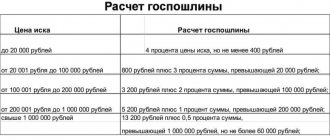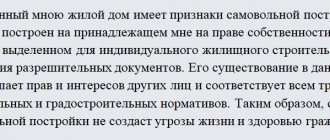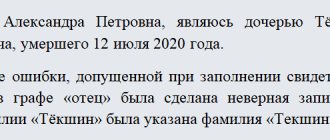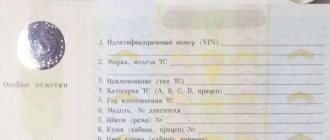The state fee to the arbitration court in 2021 is provided for filing a claim of a property and non-property nature. In the first case, this may be an appeal of the decision of the Federal Antimonopoly Service or other government agencies or services in the manner prescribed by Article 198 of the Arbitration Procedure Code of the Russian Federation. In the second case, these are most often disputes between the parties to the contract, including about its termination, debt collection and penalties. The state fee is always paid by the one who applies for judicial assistance. To find out how much you will have to pay, use the calculator.
How to use the calculator
Step 1. In the “Plaintiff” list, select who is the plaintiff, that is, who files the claim with the demands. This can be either an individual or a legal entity. The last option is selected by default.
Step 2. In the “Application Type” list, indicate what type of claim you are filing. This may be a property or non-property proceeding, or an appeal or cassation complaint.
Step 3. If you chose a property claim, you will need to indicate the amount of the claim. Enter it in the field of the same name. The amount of state duty will be displayed automatically. This setting option will be needed to collect penalties.
Step 4. If you have chosen a non-property application or an appeal or cassation complaint, the “Type of appeal” list will open. Find the appropriate item in it and mark it. The amount of the state duty will automatically be displayed at the top of the page.
For example, to terminate a government contract, you need to select the type - a statement of a non-property nature, and the type of application - the very last item “Other statements of a non-property nature, including statements of recognition of rights, statements of an award to perform duties in kind.”
If you change any of the parameters, the fee amount will also automatically change.
IMPORTANT!
Don’t forget, if the claim contains both property and non-property claims, you will have to pay two fees for each type of claim!
Who has the right to file a claim?
The parties to the conflict in the arbitration court are:
- any organizations, including budget ones;
- government agencies;
- individual entrepreneurs;
- ordinary citizens.
The nature of the appeal does not matter. Whether it is a property or non-property dispute, payment will have to be made to the budget in any case. Please note that the amount of the state fee to the arbitration court when filing a claim is directly affected by the type of dispute.
Appealing the FAS decision
Article 52 of the Federal Law of July 26, 2006 No. 135-FZ “On the Protection of Competition” states that any decision or order of the antimonopoly authority can be appealed within three months from the date of its adoption. This can be done in court, which means it is necessary to calculate the state duty to the arbitration court when appealing the FAS decision. Since this claim has no price and is not a property claim, there is a fixed fee in this case. According to the norms of clause 3 of Article 333.21 of the Tax Code of the Russian Federation, it is 3,000 rubles. This amount depends on the arbitration authority to which the applicant applies: in appeals and cassation, you need to pay 50% of the initially paid state duty, and when applying for supervisory review to the Supreme Court - the same 3,000 rubles.
Calculation of state fees for courts of general jurisdiction
Judicial bodies of general jurisdiction include district (city) and magistrate courts. When applying to them with a non-property claim, the state fee is:
- for citizens - 300 rubles;
- for enterprises - 6,000 rubles.
For example, your ex-husband lives in your apartment, purchased before marriage, and does not want to move out. To get rid of him once and for all, you will have to apply to a judicial authority with a claim to evict your ex-spouse from your living space. The requirement is not property, so you will pay 300 rubles to the treasury.
If the claim is subject to assessment, then the state duty is calculated from its amount. Let's take a closer look:
- 4%, but not less than 400 rubles. - if the claim amount is up to 20 thousand rubles;
- 3% - from the amount over 20 thousand rubles. + 800 rub. (up to 100 thousand rubles);
- 2% - from the amount over 100 thousand rubles. + 3200 rub. (up to 200 thousand rubles);
- 1% - from the amount over 200 thousand rubles. + 5200 rub. (up to 1 million rubles);
- 0.5% - from the amount over 1 million rubles. + 13,200 rubles, but not more than 60 thousand rubles.
Thus, the tax levy on a property claim cannot be lower than 400 and higher than 60 thousand Russian rubles. To calculate the state duty, you must take into account all the amounts that you want to recover from the defendant (the cost of the claim).
For example, neighbor Khapugin A.S. borrowed 100 thousand rubles from you at 10% per annum. He did not repay the debt on time and did not pay interest. The agreement concluded between you and A.S. Khapugin provides for a penalty of 2% for each day of late payment. Thus, the cost of the claim will consist of:
- debt amount - one hundred thousand;
- percent - ten thousand;
- fine - thirty thousand rubles.
Total: 100,000 + 10,000 + 30,000 = claim price 140 thousand rubles. We calculate the state duty as follows: 40,000 (we take an amount that exceeds one hundred thousand) x 2% + 3200 = 4000 rubles - this is exactly the amount of the state duty.
If you are applying for a court order, then the tax fee is calculated in the same way as above, but the final amount is divided by 2. The requirements for issuing such a document are indicated at the end of the article.
In addition, the state has approved fixed state fees when applying to the court of first instance. Such requests include:
- divorce - 600 rubles;
- awarding alimony payments - 150 rubles, and if the claim is simultaneously made on oneself and on the children - 300 rubles;
- refutation of legal acts: for citizens 300 rubles, for enterprises 4500 rubles;
- recognition as illegitimate decisions and actions (inaction) of public services and officials: for citizens 300 rubles, for enterprises 2 thousand rubles;
- conducting a case in a special regime - 300 rubles;
- demand for compensation for failure to comply with the terms of judicial proceedings or execution of a judicial act: for citizens 300 rubles, for enterprises 6 thousand rubles.
When a party to the trial is not satisfied with the judge's verdict, the decision can be challenged. We talked in detail about how to do this here. The state will also have to pay for challenging it. The fee for a supervisory appeal is charged in the amount of the state duty for a non-property claim. When filing an appeal or cassation complaint, a citizen must fork out 150 rubles, and an enterprise 3,000 rubles.
The legislator introduced a separate column for the state duty for arbitration courts. When filing an application for the issuance of a writ of execution or to cancel the decision of such a judicial body, you must pay 2,250 rubles. Securing a claim will cost less - 300 rubles.
Debt collection and penalties (fines and penalties)
If you go to arbitration with a claim of a property nature, the state duty must be calculated based on the price of the claim:
- up to 100,000 rubles - 4% of the claim price, but not less than 2,000 rubles;
- from 100,001 to 200,000 rubles - 4,000 rubles. plus 3% of the amount exceeding 100,000;
- from 200,001 to 1,000,000 rubles. — 7,000 rub. plus 2% of the amount exceeding 200,000;
- from 1,000,001 to 2,000,000 rubles. — 23,000 rub. plus 1% of the amount exceeding 1,000,000;
- over 2,000,000 rubles - 33,000 rubles. plus 0.5% of the amount exceeding 2,000,000, but not more than 200,000.
The entire penalty, which was calculated by the applicant independently, is included in the price of the claim. Therefore, the duty is calculated on the entire amount of debt and penalties. If during the consideration the claims change or the arbitration court recalculates the amount of the penalty, then the state duty must also be recalculated.
Cost of claim
For non-property disputes, the price of the claim is not determined. Consequently, the statement separately states that the claim is of a non-property nature. That is, the circulation price is not reflected in monetary terms. In this case, it is not difficult to calculate the state duty, since it has a fixed amount.
But the property nature of the appeal directly affects the amount of payment to the budget for the provision of public services. Please note that the price of the claim includes the total amount of penalties, demands, penalties and fines that are presented to the defendant. Or the value of the statement of claim is recognized as the value expression of property claims. For example, the value of the disputed real estate and other assets.
How to calculate and pay
To calculate the required amount depending on the circumstances, it is most convenient to use a special calculator, which can be found on the website of the desired arbitration court. If the claim simultaneously contains both property and non-property claims, it is necessary to calculate and pay simultaneously the amount of the fee established for both one and the other claims.
Details for the transfer can be found on the official website of the arbitration court. After completing the calculations, the system immediately allows you to select the “Fill out payment order” function and generate a payment document. If submitting documents electronically, you must also provide proof of payment of the fee. If it turns out that it was paid in a smaller amount than necessary, the arbitration judge will leave the application without progress and set a deadline for eliminating the deficiencies. The meeting will be scheduled only after payment in full has been received.
Type of appeal
It depends on the nature of the claim what to enter into the fee calculator (arbitration court) and how to calculate the amount. The law defines two types of claims: property and non-property.
The non-pecuniary type of claim is a type of claim in which the plaintiff does not have material and financial claims against the defendant. For example, the essence of the statement of claim is a request to terminate the contract or to recognize any decision as void or invalid.
A property claim is an appeal to resolve financial, material and property disagreements between economic entities. For example, the plaintiff demands to recover a specific amount from the defendant for violation of the terms of the contract or to recognize property rights to any asset.
Depending on the type of claim in court, the state duty to the court is calculated when filing a statement of claim in 2021, and the price of the statement of claim is determined.
Who must pay the appeal fee?
Every participant in the process has the right to file a complaint with a higher authority. This point is clearly explained in Article 320 of the Code of Civil Procedure of the Russian Federation, paragraph 1. The participants in the process are:
- Plaintiff.
- Defendant.
- Prosecutor.
- The person who files the appeal.
Consequently, the initiator of the complaint will pay the state fee. The federal fee is paid before the start of legal proceedings. Several factors influence the amount of the fee:
- Issue under consideration.
- Place of filing a complaint.
- Applicant.
Any applicant has the right to receive a deferment in payment of the fee for 12 months or the opportunity not to pay the fee if the following circumstances are established:
- If it is revealed that the initiator has a difficult financial situation.
- The applicant is a beneficiary.
Petitions in administrative cases are not subject to state fees.
Payment methods for state fees
There are a sufficient number of ways to pay state fees. Everyone can choose the most convenient and practical one for themselves. Let's look at the most common payment methods.
Payment of state duty through a Sberbank ATM
An ATM is a device that has long been known to everyone, with which you can perform a wide variety of financial transactions. Previously, it was used only to receive funds. Now it performs the following functions:
- Checking the status of your personal account. Using an ATM, you can perform this operation in just a couple of minutes. Most users often check the balance on their card using this device. It can be obtained both on screen and in print.
- Issuance of funds. As mentioned above, most ATMs were originally produced for this very purpose.
- Acceptance of funds. Almost every modern ATM is now equipped with a special compartment for accepting funds. It accepts up to 50 bills at once. Insert them after removing rubber bands, paper clips and other foreign objects. The ATM will automatically calculate all funds and credit them to your card.
- Payment for services. Using each ATM, you can pay for any services (utilities, state fees, etc.) You must enter the recipient's details and send the required amount. This operation takes only a couple of minutes.
- Money transaction. Through an ATM you can transfer funds to another Sberbank client without commission in just a couple of minutes.
To pay the state fee, select the required section to pay for services, enter the recipient's details correctly and make the payment. Save your receipt! It is a document to confirm the fact of transfer of funds.
Payment of state duty through the Sberbank terminal
A terminal is significantly different from an ATM. This machine appeared in Sberbank branches not so long ago. Its main difference from an ATM is that it is not designed to dispense funds.
In order to pay the state fee through the terminal, select the appropriate section in the main menu. Next, indicate your region and recipient's name. All details will be entered automatically.
Select the type of state fee (in this case, the state fee for filing an appeal). Make a payment. This can be done using a bank card.
As in the previous case, be sure to keep the receipt of payment. If it is lost, the payment will be considered invalid. To begin legal proceedings, you will need to pay the state fee again, which will lead to unnecessary costs.
Refund of legal fees
When filing a statement of claim with the arbitration court, you can also immediately claim the recovery of legal costs. Or submit an application to the arbitration court, which considered the case as a court of first instance, within 6 months from the date of entry into force of the last judicial act, the adoption of which ended the consideration of the case on the merits.
The party in whose favor a positive decision was made has the right to compensation for all legal costs from the other Party to the case; legal costs also include the amount of the state fee paid when filing the claim.
If the claim is partially satisfied, legal costs are distributed in proportion to the size of the satisfied claims between the persons participating in the case.
Grounds for duty refund
Grounds for refund of duties
Legislative regulations provide grounds for refund of duties to the payer. This is possible in the following cases:
- if a citizen changes his mind about filing an appeal after paying the fee;
- if the amount of payment exceeds the deduction amount established by law.
To return the duty, the payer must submit a corresponding application to the tax office at the location of the court. Along with the application, it is necessary to submit a court decision on the return of the duty, as well as a document confirming the fact of its transfer.
Section 333.40. Grounds and procedure for refund or offset of state duty
Section 333.40. Grounds and procedure for refund or offset of state duty
The money will be returned to the payer a maximum of one month after submitting the said application. The statute of limitations for this point is 3 years. After the expiration of the designated period, the request for a refund will not be considered, except in situations provided for by current legislative regulations.
| Conditions for refund of state duty (partially or in full) | When the state duty is not refunded |
| payment of state duty in a larger amount | when the defendant voluntarily satisfies the plaintiff’s demands after the latter applies to the arbitration court and a ruling is made to accept the statement of claim for proceedings, as well as when a settlement agreement is approved by a court of general jurisdiction for a significant action |
| termination of proceedings in a case or leaving a statement of claim without consideration by a court of general jurisdiction or an arbitration court | |
| refusal of persons who have paid the state duty to perform an action before contacting the authorized body performing this legally significant action | |
| If a settlement agreement is concluded before the arbitration court makes a decision, 50 percent of the amount of the state duty paid by him shall be returned to the plaintiff. This provision does not apply if the settlement agreement is concluded in the process of executing a judicial act of the arbitration court | |
| return of an application, complaint or other appeal or refusal to accept it by the courts. If the state duty is not returned, its amount is counted towards payment of the state duty when filing a claim again, unless the three-year period has expired from the date of the previous decision and the original document on payment of the state duty is attached to the repeated claim |
Application for refund of state duty. Form
Application for refund of state duty
Sample application for refund of state duty to the tax authority. Form
Sample application for refund of state duty to the tax authority
State duty benefits
Legislative norms determine the following procedure for benefits. Representatives of the following categories of citizens are exempt from paying the fee :
- persons awarded the title of Hero of the Russian Federation or the USSR;
- citizens who are full holders of the Order of Glory;
- persons who took part in the Great Patriotic War, as well as those who became disabled as a result of those events.
To receive the benefit, the applicant must present the appropriate identification. State duty benefits
The following categories of claims are exempt from collection:
- drawn up in relation to labor disputes, benefits;
- alimony;
- submitted for the purpose of claiming compensation for harm resulting from injury and other injuries to the breadwinner, as well as upon his death;
- drawn up with a claim for compensation for moral/property damage that arose as a result of the crime;
- complaints affecting aspects of the divorce process.
In accordance with current legislation, parties to proceedings may be released from the encumbrance in question in the following situations:
- when requesting a deferment of execution of court orders;
- in case of filing an application to change the procedure/method of execution of decisions made as a result of the trial;
- when requesting an extension of the missed deadline; Article 333.18. Procedure and deadlines for paying state duty
- in case of filing a petition for review of a default judgment, decisions and rulings, final decisions;
- when filing complaints regarding the performance or non-performance of their duties by bailiffs;
- in case of submission of private complaints against judicial rulings for consideration. The situation is clarified on an individual basis.
In addition, citizens of the following categories may be exempt from the state penalty in question:
- applicants submitting complaints for judicial consideration regarding compensation for any kind of harm caused during criminal prosecution;
- citizens who were unjustifiably subjected to political repression and rehabilitated in accordance with established legislative provisions;
- persons belonging to the category of refugees and forced migrants in the event of an appeal challenging the refusal to recognize them as such, registration and other provisions provided for by legislative standards;
- citizens appealing to the court in cases related to adoption;
- applicants filing appeals in cases of protection of children, their legitimate interests and established rights;
- citizens appealing proceedings in cases of a non-property nature affecting the rights of people with disabilities;
- applicants filing appeals in relation to cases of compulsory psychiatric treatment/examination of citizens;
- prison inmates if they submit a request for the re-issuance of various types of documents drawn up during judicial proceedings, if they have the right to familiarize themselves with them; Article 333.41 of the Tax Code of the Russian Federation
- appeals from citizens positioned as authors of the results of various types of intellectual activity. Such applicants are exempt from the burden of state fees in the event of appealing claims for their admission to work with intellectual property owned by other persons.
When challenging a claim worth up to 1 million rubles , the burden in the form of state duty can be lifted from representatives of the following categories of citizens/organizations:
- organizations of disabled people;
- citizens who are disabled I-II groups;
- veterans of various military operations and services;
- citizens resorting to appeal against decisions regarding violation of consumer rights;
- pensioners in the event of claims being brought against state and non-state pension funds, as well as against executive bodies whose powers include pension provision for former military personnel. Application for refund of state duty
If the value of the claim is more than 1 million rubles , representatives of the above categories will be required to pay a penalty in the amount of 0.5% of the amount over 1 million rubles. The maximum value of the duty cannot exceed 60 thousand rubles.










